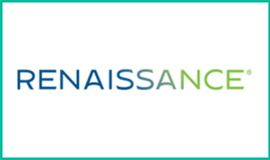nonfiction reading trends, insights into topics students choose, and helpful tools for educators.

“Providing students with reading materials that are culturally relevant, appealing, and accessible cannot be overstated,” said Gene Kerns, vice president and chief academic officer at Renaissance. “What Kids Are Reading provides a unique glimpse into what other students are reading and hopefully sparks new discoveries for others.”
To help educators and families encourage students to read more fiction and nonfiction, the report offers information on the most popular books for each grade, data on popular nonfiction and curricular connections by grade bands, and tips on how to maximize the effects of the time students spend reading. In addition to a Lexile® text complexity measure and ATOS® reading level included with each title, an all-new section highlights the connections between reading and different careers and includes sample Lexile text complexity measures for popular careers students might pursue.
Key findings of the report include:
- Students read the most nonfiction in grades 3–5, making up an average of 54 percent of their total reading when reading on a digital platform.
- Three is the magic number: When students read three or more books on a topic, they tend to score higher on comprehension quizzes focused on books in that topic area.
- The number of topics students read about tends to decrease as they progress through school.
The report also shines a light on how students’ reading interests change as they age. K–2 students gravitate toward poetry and rhymes, so Dr. Seuss books are often the most popular. In grades 3–5, sports and recreation take center stage, and interpersonal relationships become the hot topic as students transition into middle school. Those interests continue to change as students enter high school, with students showing a continued interest in sports, while also balancing assigned reading.
The full report is available now at www.renaissance.com/wkar/, along with additional tools including a Custom Report Builder that uses filters such as state, grade, difficulty level, and more. On March 18, Renaissance is also hosting a webinar that delves more into the findings from this year’s What Kids Are Reading report.
About Renaissance
As a global leader in assessment, reading, and math solutions for pre-K–12 schools and districts, Renaissance is committed to providing educators with insights and resources to accelerate growth and help all students build a strong foundation for success. Renaissance solutions are used in over one-third of US schools and in more than 90 countries worldwide. The Renaissance portfolio includes Star Assessments, for reliable, accurate insights into K–12 student learning; myIGDIs, for accurate assessment of early learning; myON, to increase students’ access to high-quality reading materials; Accelerated Reader, to support independent reading practice; Freckle, for teacher-led differentiated instruction; and Schoolzilla, to give educators actionable insights into trends in student attendance and achievement. For more information, visit www.renaissance.com.












